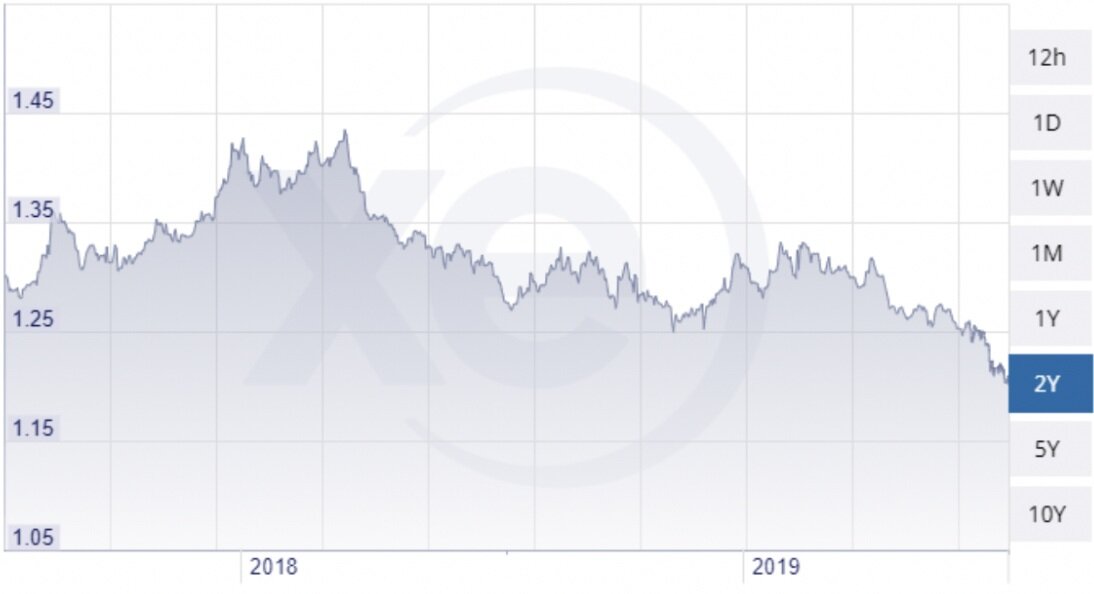BABC Texas Member, XE, provided the update below about the US/UK financial markets. Information was up to date as of August 15, 2019. For more information contact them at +1-737-205-2067 or uspartnerships@xe.com
Last week, the pound reached the lowest point against the US Dollar since March 2017, amidst political uncertainty and a Brexit negotiation that is still very much up-in-the-air. With GBP/USD hitting 1.206 early Monday morning, sterling has now fallen by more than 4% since the start of July, as shown on the two-year graph below. Markets are still concerned by the risk of a no-deal Brexit, and the effects that would have on the British economy.

Why has the pound fallen in July?
New UK Prime Minister Boris Johnson has committed to Brexit being delivered by the end of October with, or without an EU deal. Does Mr Johnson have enough time and leverage to negotiate a deal or will it result in yet another extension? That is yet to be seen, however the UK government have so far not agreed to any deal proposed by the previous Prime Minister, so Boris certainly has a task on his hands. Further, the EU has repeatedly stated it will not further negotiate terms beyond the deal that was agreed to with Theresa May, while Johnson wants to remove Irish backstop terms entirely.
What comes next?
With the lower than expected UK GDP (Gross Domestic Product) figures released on Friday, there are now concerns of a UK recession hitting the economy. This won’t be confirmed either way until Q4, but market eyes will be eagerly watching UK economic data for any further indication of a slow-down.
There is also pressure on the US Federal Reserve from President Trump to lower interest rates to boost the US export trade. Generally, a currency devalues when an interest rate is reduced, so the question will be whether the markets have already priced in the rate cut to the USD exchange rate, or if the pound will regain some of its value.
Perhaps less likely is the chance that Boris Johnson will call for a general election, should he not gain the required support from his party. If that is the case, it will be extremely difficult to predict which way the Pound moves, as it could result in a new Brexit direction altogether.
The currency markets are set to remain volatile whilst there is still so much global uncertainty. Each political comment or central banking decision is causing significant currency movements which can affect expatriates or organizations who have significant international currency exchange requirements.
For example, $10,000 in April 2018 would have bought you £6,975, yet at this August’s low, it would fetch you £8,285. If your transfer requirement is not immediate, forward contracts enable you to lock in today’s exchange rate for a period up to 3 years in advance, effectively minimizing the risk against market volatility.

XE Money Transfer, a trusted global payments and foreign exchange specialist for businesses and consumers. Whenever you have a currency requirement, XE can typically save you up to 5% on the exchange rate and eliminate the fees on your international payment.
Speak to XE today to open your free account ahead of your next overseas transfer.
